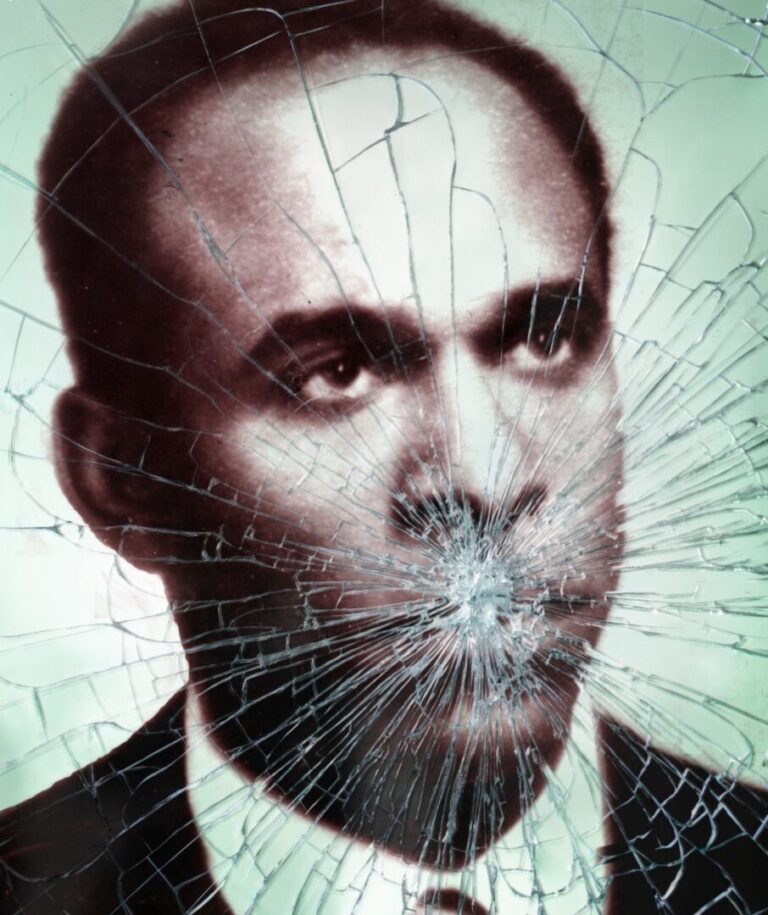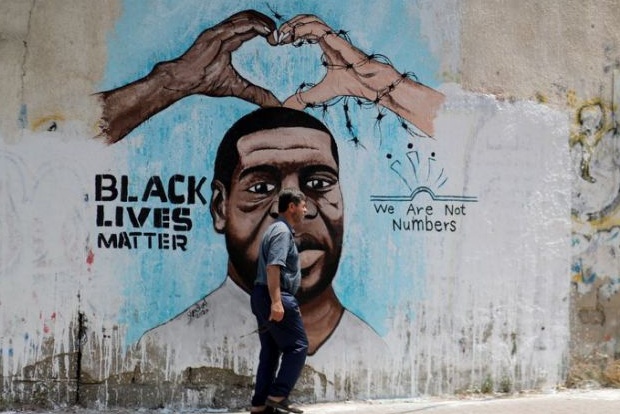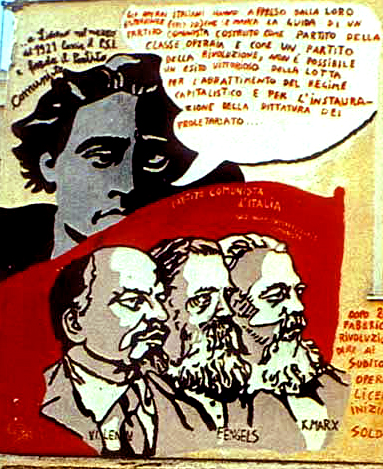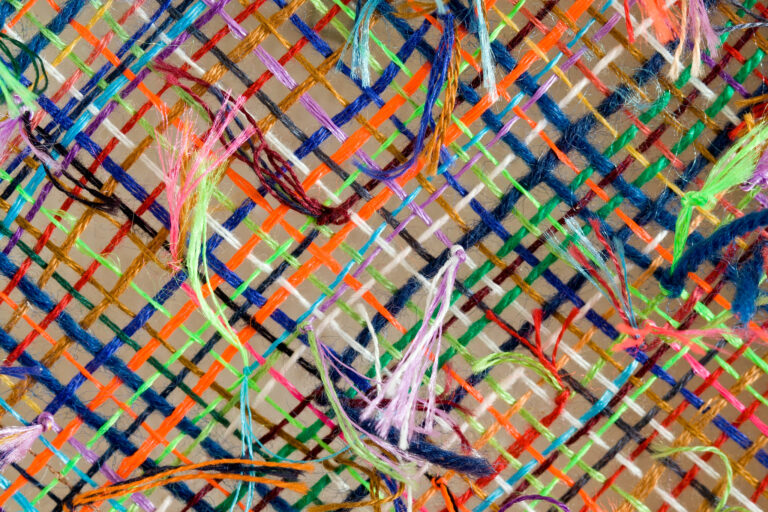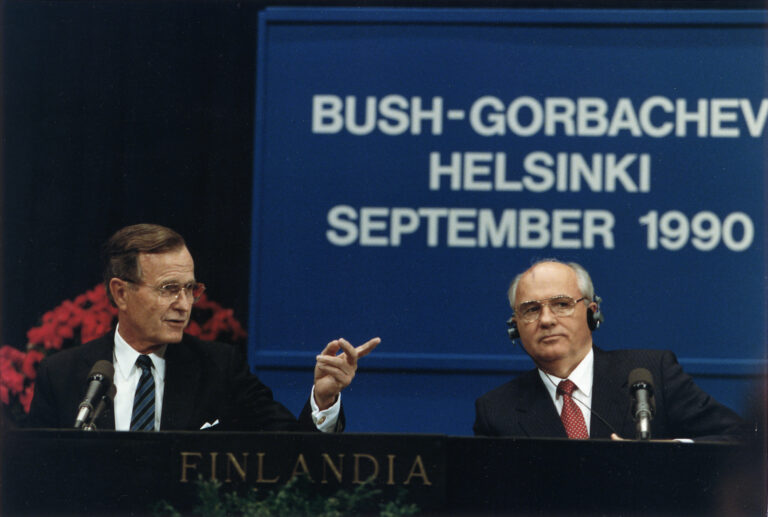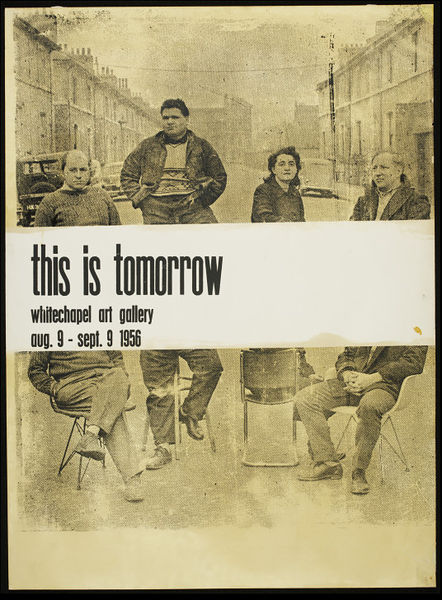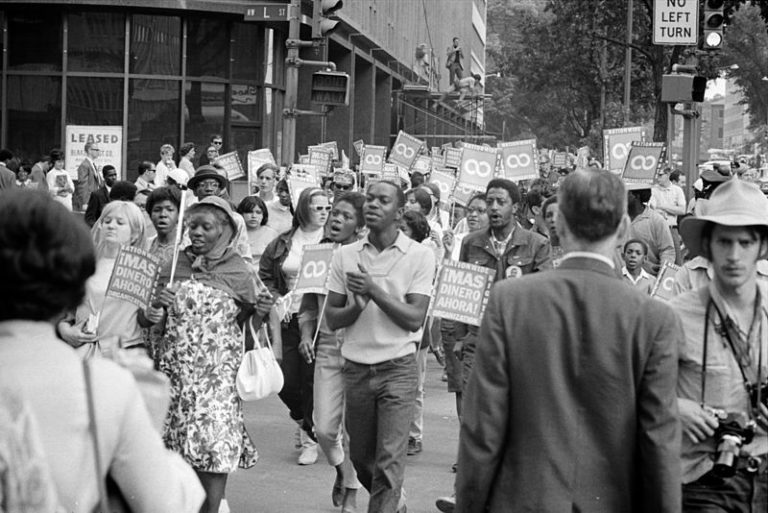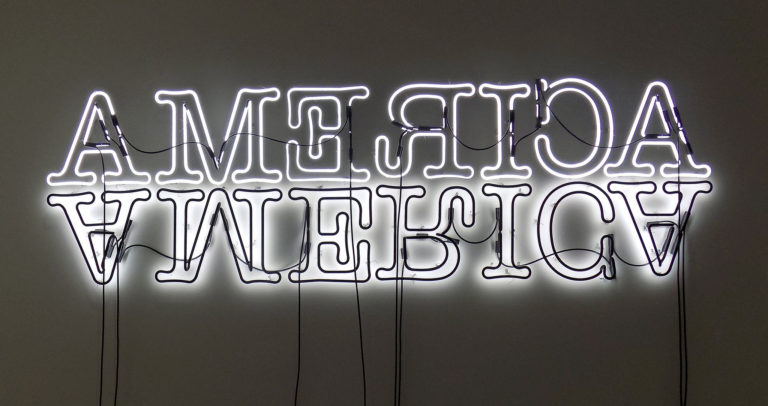This issue marks the tenth year of publishing Lateral. We reflect here on this milestone and highlight work in the current issue, including a new forum on Cultural Constructions of Race and Racism in the Middle East and North Africa / Southwest Asia and North Africa (MENA/SWANA) and a special section on Cripistemologies of Crisis: Emergent Knowledges for the Present. We discuss several of these pieces in relationship to ongoing violence in Israel and attacks in the United States against “critical race theory” and conclude with calls for open access scholarship.
Keyword: cultural studies
“A Program of Complete Disorder”: The Black Iconoclasm Within Fanonian Thought
This essay examines the scholarship of revolutionary theorist Frantz Fanon and the debate surrounding his conception of decolonization and “new humanism.” Across a multitude of fields, Black and cultural studies among them, Fanon has been heralded as an iconic thinker who offers us a path toward an alternative humanity. Working against the grain of this popular form of Fanonism, I suggest that there is a Black iconoclasm—a deep desire to unsettle the very rendering of a systematic path toward decolonization—that pervades Fanonian thought. Accordingly, the essay examines and unsettles various forms of Fanonism by suggesting that their teleological narratives of redemption ultimately end up serving anti-Fanonian pursuits. Through an extended meditation on Fanon’s claim that decolonization is “a program of complete disorder,” I explore what it might mean to embrace a Black iconoclastic approach to Fanon and the pursuit of Black liberation.
Introduction: Cultural Constructions of Race and Racism in the Middle East and North Africa / Southwest Asia and North Africa
In recent years, scholars in the fields of cultural studies, American studies, history, ethnic studies, and Middle East area studies have approached questions of race and racism in this geographic region with renewed critical vigor. Recent work deconstructing anti-Arab racism and Islamophobia in the Americas and Europe has put these patterns of discrimination into intersectional conversation with anti-Black and anti-Indigenous racism. New historical efforts have drawn attention to the legacies of slavery in the Ottoman, Persian, and Arab Empires, working to understand how forms of racialization and racial hierarchization predated and were exacerbated by the arrival of European imperial forces. At the same time, activists in the region draw attention to prevailing racism against migrant laborers, marginalized indigenous populations, and others as the afterlives of colonialism, war, austerity, and revolution carry on. Together, this academic and activist work asks for attention by leaders, community members, and scholars of this region to the particularities of racecraft in the region: How are “Blackness” and “whiteness” constructed in the Arabic, Hebrew, Persian, and Turkish speaking worlds? What are the obstacles to discussing and identifying race particular to the histories of this region, its peoples, and its histories? This forum uses close readings of popular culture and political discourse across the Middle East and North Africa / Southwest Asia and North Africa (MENA/SWANA) in pursuit of these questions and others.
1986—The Marxist Disciplining of the Cultural Studies Project
Since its infancy, the pluralistic tendencies of the cultural studies project denied methodological and procedural consistency and resisted any disciplining of cultural studies as an attempt at authoritarian policing. Over the course of the 1980s, cultural studies continued to spread beyond the United Kingdom to Australia and the United States, initially, and the rest of the world soon thereafter. Movements towards the bridging of the longstanding divisions between fact and interpretation—between the social sciences and the humanities—under the sign of a principled approach to cultural democracy saw the Althusserian Marxism characteristic of earlier cultural studies scholarship expanded by way of a critical re/engagement of the works of Gramsci. This period of ideological critique allowed for a bold intellectual, political commitment to the re/conceptualization of culture as a site of class struggle, hegemonic formation, and structural signification. Particularly, the year 1986 saw major strides in this direction with the publication of monumental manuscripts by Stuart Hall, Ernesto Laclau, and Chantal Mouffe.
Cultural Studies in the Interregnum
This issue of Lateral contributes to a number of ongoing questions and conversations. In it, we see a range of methodologies that span particular sites, take up theoretical debates, and cross borders and boundaries, both political and cultural. The work of this issue sits in conversation with the present moment, even as it at times draws on and excavates the past. 2020 has seemed to both accelerate and extend a number of ongoing crises and emergencies that have defined the decade. Contributors to this issue are working in and through this gap. Many new structures, including a new structure of feeling, are ascendant, and the task of contemporary cultural studies is clear: thinking and theorizing the interregnum will define the work of the present conjuncture.
1990—Alliances from the Rubble
At the dawn of the 1990s, the world was undergoing dramatic transformation—and cultural studies was no exception to this force. By looking at the Illinois conference, the Oklahoma conference, and the special issue of Cultural Studies edited by Rosa Linda Fregoso and Angie Chabram, we evaluate how cultural studies reacted to the sweeping tide of reformation and re-commitment of the 1990s. Ultimately, these events prove that, in 1990, cultural studies made the most of the opportunity to reflect, listen to its critics, and change for the better, and each event can serve as a valuable touchstone as we continue to construct and deconstruct our discipline.
Editors’ Introduction: Abolition Now
Cultural studies continues to develop its schools of thought, methodologies, and disciplines that are abolitionist. The articles in this issue encounter cultural studies across a range of sites: India, Spain, China, the US, and other geographies. It points toward the importance of cultural studies in a variety of contexts, the ways that cultural studies stands as both an intense form of critique and the political possibilities for its enactment as a program of work.
Editors’ Introduction
This issue features six full length articles, the final section in the universal basic income forum that has spanned three issues, the expansion of our Years in Cultural Studies project, and a number of book reviews.
1956—The British New Left and the “Big Bang” Theory of Cultural Studies
In intellectual histories of cultural studies, the year 1956 usually figures as a “big bang” moment. Centered on the geopolitical flashpoints of the Hungarian Revolution and the Suez Crisis, it was the year that catalyzed the British new left, and thus, the story goes, provided a new front of political critique that would serve as the jumping-off point for the nascent formation of cultural studies in Britain. This article presents a brief overview of this conventional pre-history of cultural studies in Britain. It then departs from this familiar story to outline several other notable “big bang” moments happening elsewhere in 1956 with resonance across literature, global labor history, the visual arts, and the women’s movement. These other moments each arguably have considerable bearing on the articulation of cultural studies in Britain, and their examples provide a more globally diverse and textured frame for re-situating the emergence of cultural studies at mid-century beyond the narrow focus on new left politics.
1968—A Turning Point in Cultural Studies
This essay traces how social movements throughout the globe in 1968 heavily influenced the development, operations, and identity of cultural studies. Thus, 1968 remains a critical turning point for cultural studies and its goals. To demonstrate this, global struggles contextualize the micro expressions of unrest at The University of Birmingham’s Centre for Contemporary Cultural Studies (CCCS). Secondly, the essay examines how the discipline negotiated studies of marginalized and subaltern cultures within this social context. And finally, an analysis of key texts of 1968 demonstrates how the sociopolitical moment produced work that is emblematic of cultural studies’ pursuits. Ultimately, the essay questions how our contemporary moment might necessitate new pursuits in scholarly praxis, like the moment of 1968 called forth new directions in cultural studies.
Editors’ Introduction: Opening Access
This introduction discusses the importance of open access scholarship and its relation to the academy. The introduction provides an overview of the articles in the journal, which include responses to the forum on universal basic income (UBI) published in issue 7.2. Finally, this issue marks the beginning of the Years in Cultural Studies project.
Introduction: Years in Cultural Studies
This special section is another iteration of cultural studies telling its own story. In our particular iteration, we offer here essays focused on specific years in the history of cultural studies. Our aim is to provide a pedagogical resource, a place for documentation and excavation, and a forum for more storytelling.
Editors’ Introduction: Expanding Laterally
This issue marks a number of important milestones for the journal and features a combination of peer-reviewed academic articles, a forum on universal basic income (UBI), and book reviews. With this issue we are also pleased announce a number of changes to the Lateral editorial team. These changes significantly extend the possibilities for the journal into the future, while reinforcing the work that is already underway.
Editors’ Introduction: Marxism and Cultural Studies
Cultural studies as a discipline and intellectual practice is deeply indebted to Marx, even as the field of cultural studies has contested, revisited, and updated Marx’s work. This issue points to a number of resonant threads currently active under the umbrella of cultural studies and opens possibilities for historical mapping of the many and varied aspects of marxist thought, in and out of the academy. The authors in this issue direct us toward and augment our understanding of the multi-faceted and inextricable links between questions of capital and questions of race, class, and gender power that have been the focus of US research in cultural studies especially within the past thirty years. In this issue, we continue and expand our editorial emphasis on the role of cultural studies in explaining and challenging the ongoing, intersectional significance of material power relations.
Introduction
Gwyneth Shanks discusses the scope of Not a Trump Issue, which privileges resistant actions that are never reducible to nor fully concerned with the Trump Administration’s policies and actions. In the wake of the Administration’s tacit and overt support of white supremacist and sexist ideologies, deregulation, global climate change denial, and attempts at voter suppression and the criminalization of communities of color, “Not a Trump Issue” questions how radical, anti-racist, feminist scholars, artists, activists, and educators can enunciate their own forms of resistance. The issue privileges actions that are engaged with surfacing deeper historical structures of inequity or dispossession; the issues at stake for the authors in “Not a Trump Issue” is not not Trump nor our political present, but always already our collective pasts.

